Oakland Legacy Project Higher Education and Financial Literacy Panel
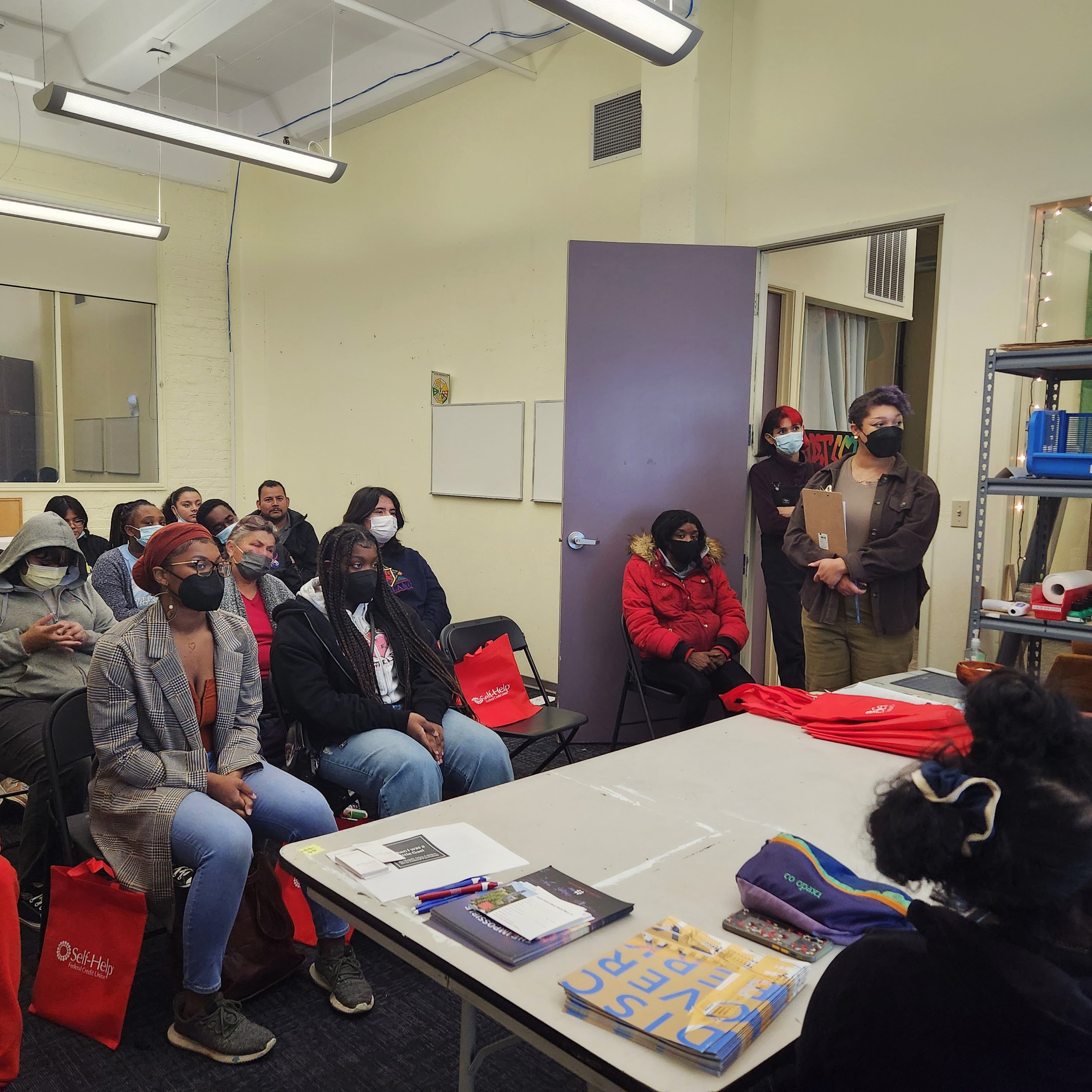
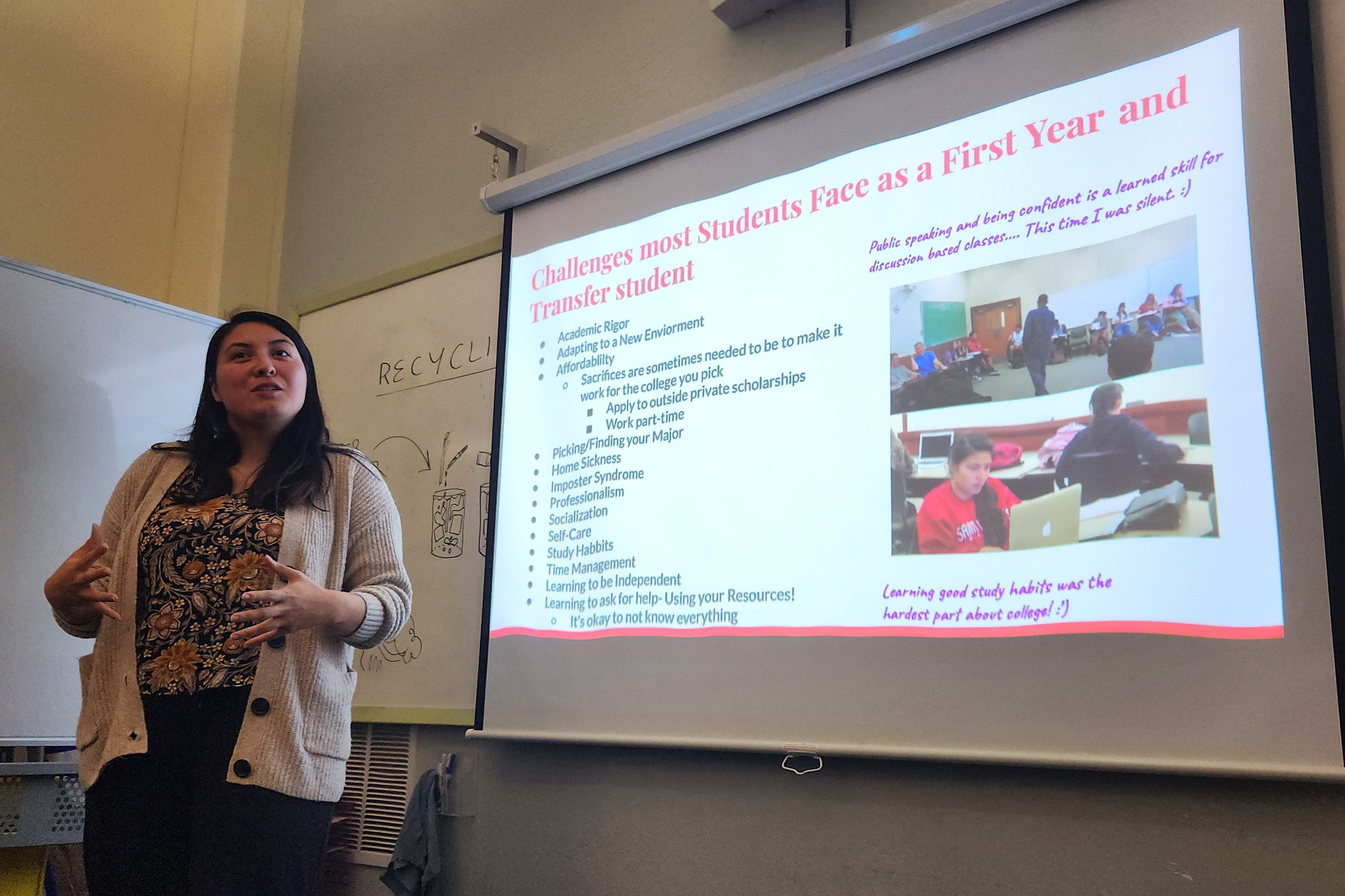
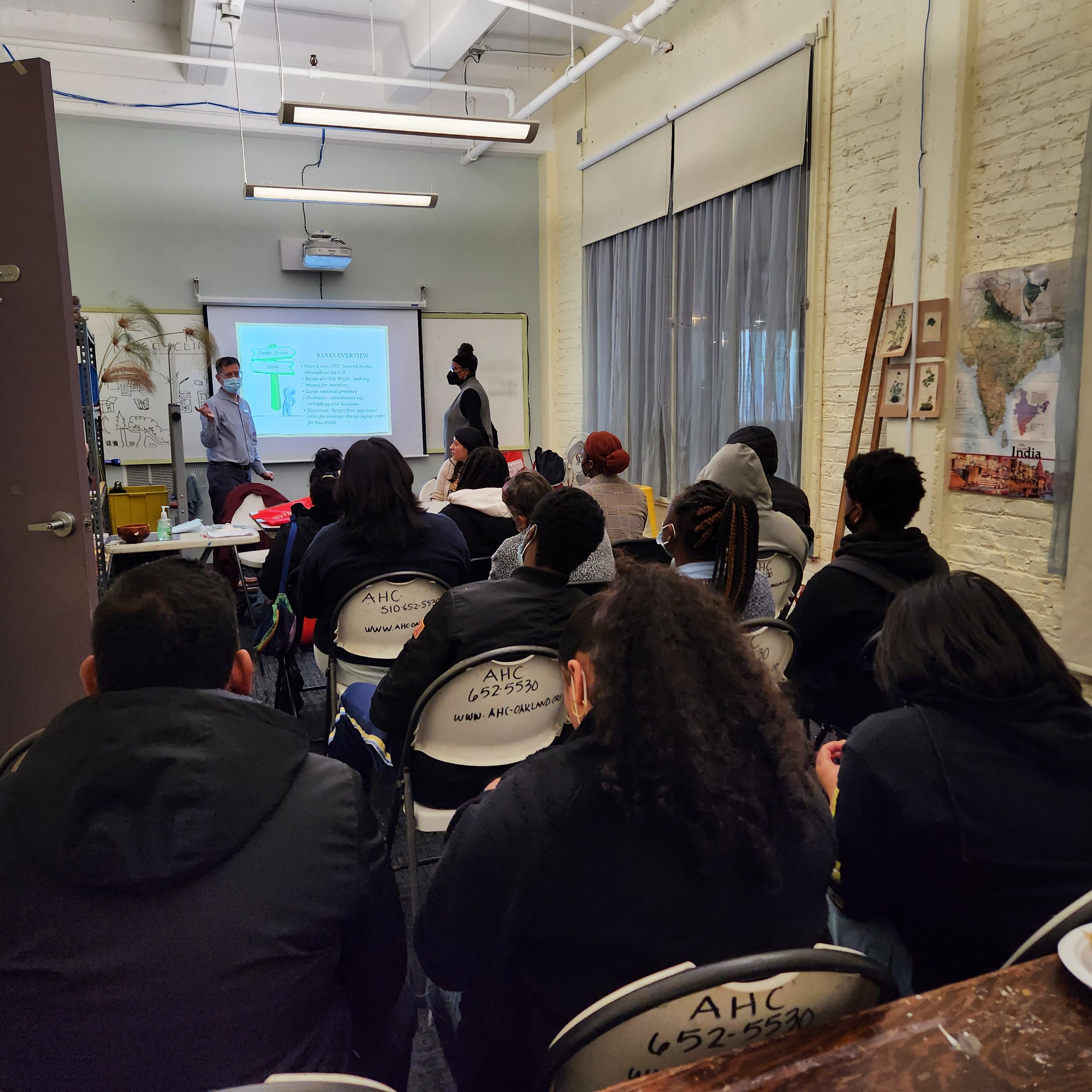
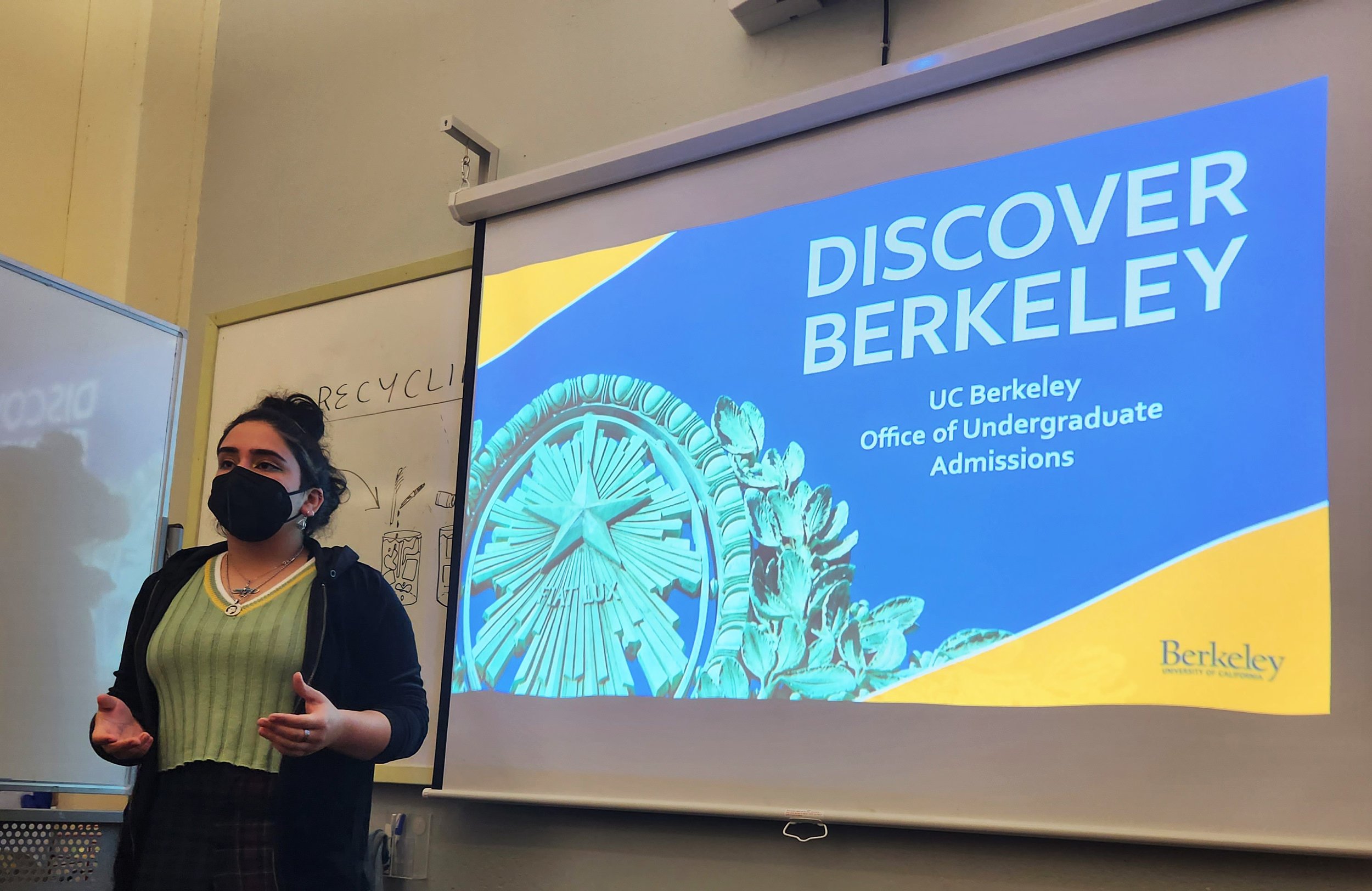
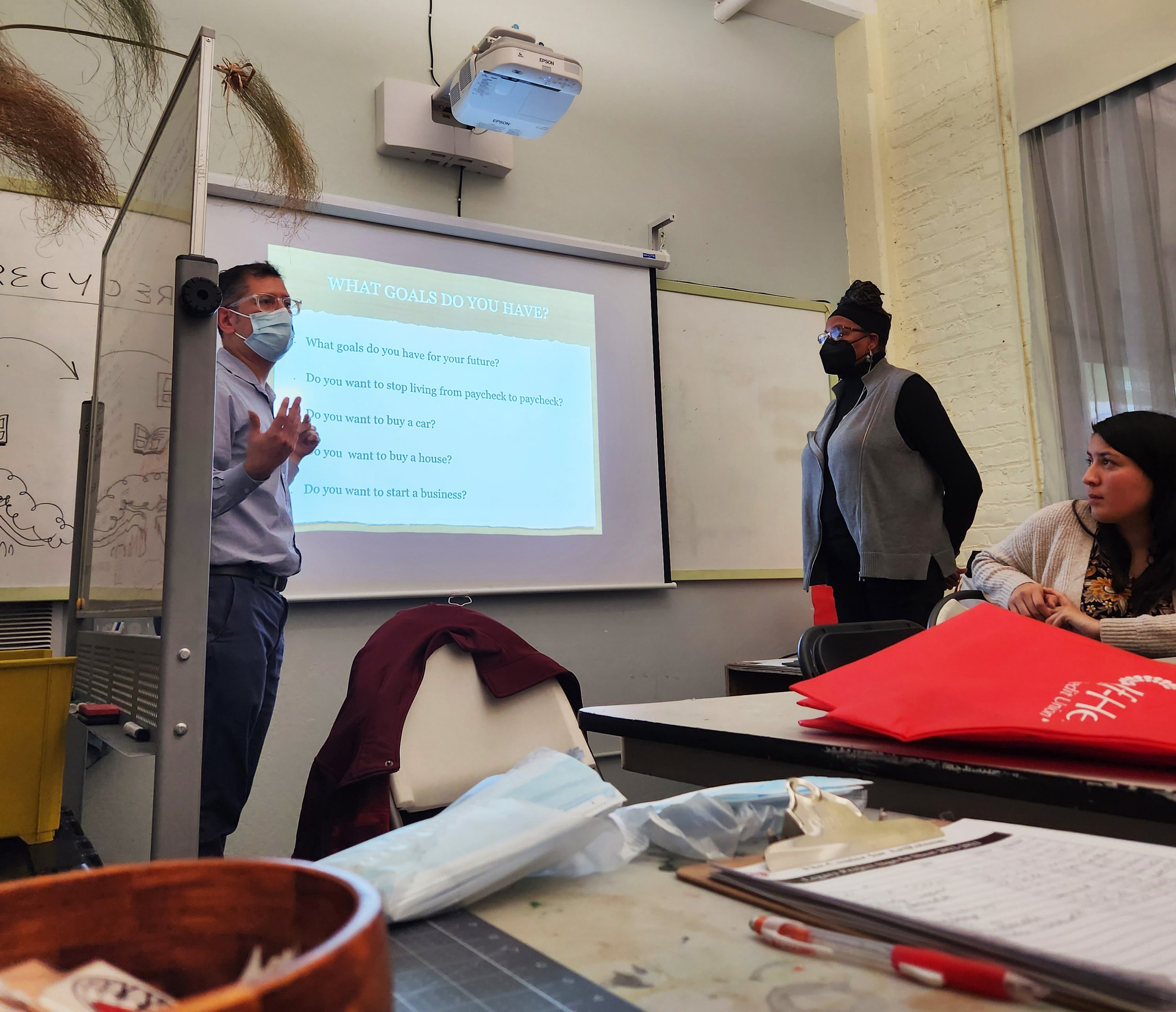
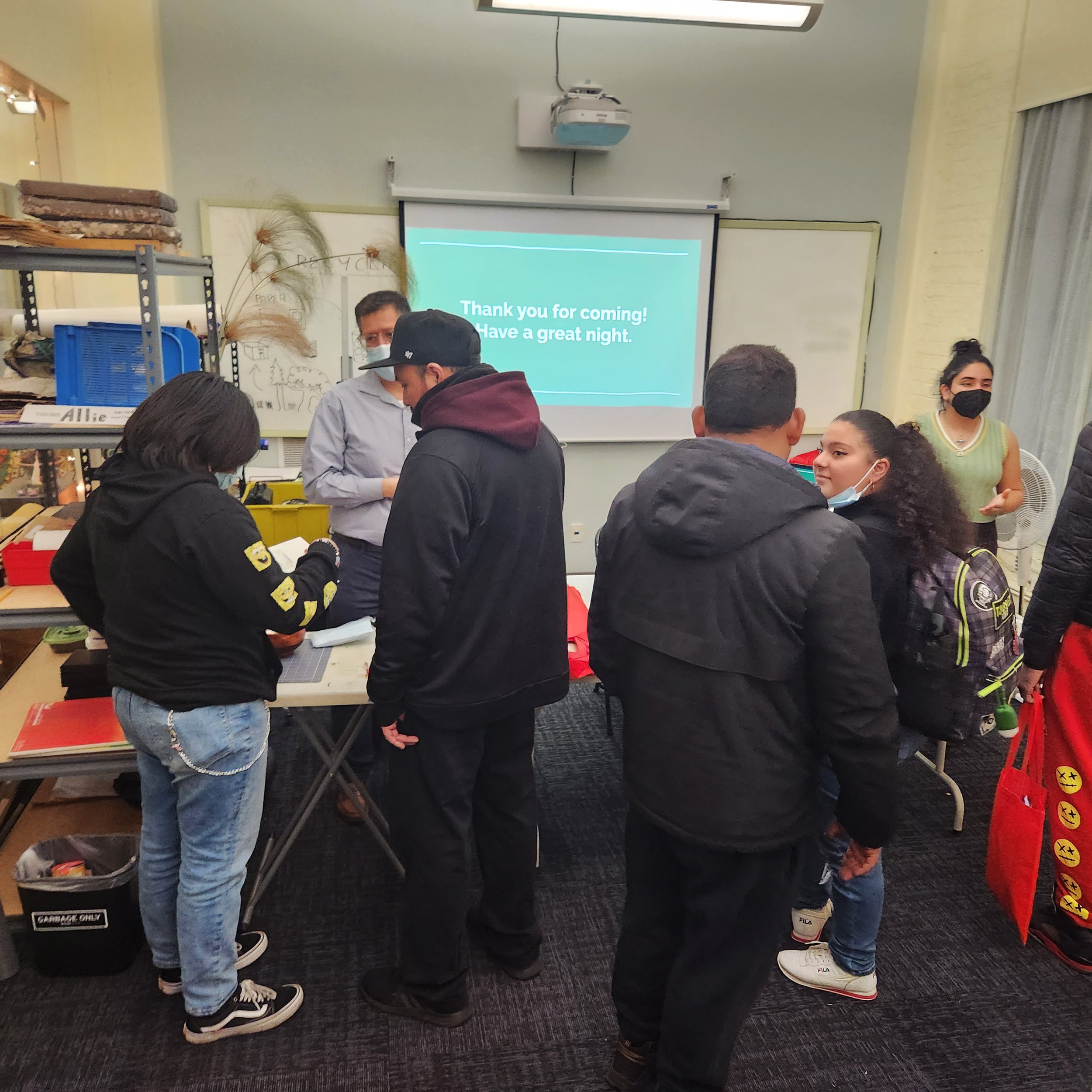
The Center for ArtEsteem is dedicated to building creative and sustainable communities through artistic empowerment and youth development. One way the agency fosters autonomy and leadership in youth is by further developing the skills necessary for navigating young adulthood. On December 8th, the Legacy Project after school program hosted a Higher Education and Financial Literacy panel for students and their families. Participants met with professionals in their fields to receive tools for managing personal finances and prepare for college readiness.
Dante Rojas, the Assistant Branch Manager at Self-Help Federal Credit Union, started the evening event with a crash course on money management. The audience learned about building credit, budgeting, and the differences between CUs and banks. Fifteen percent of Oakland families do not have a bank account, which is twice the national average. Legacy students received their first stipend check for the program. Encouraging our high school students early on to create a bank account not only teaches them to save their money but also the important responsibility of managing their finances.
Afterwards, the audience received presentations from Senior Admissions Counselor Magaly Arias-Lobatos from St. Mary’s College, as well as Assistant Director LGBTQ+ Community Liaison Naseem Salim from University of California Berkeley. They covered the topics of private-versus-public school differences, college application processes, and the relevancy of Legacy Project to the campus’ mission. As representatives of their alma mater, our college guest speakers were also able to share their personal insight for first year students. including financial aid opportunities and struggles, finding community through affinity groups, and campus resources to take advantage of. Along the intersections of race, class, disability, citizenship, and gender, both colleges provided financial and academic support for students with marginalized identities.
Our guest speakers held bilingual presentations to accommodate our Spanish-speaking families, and were able to answer their questions during the post-tabling session. Students were excited to learn that they could receive letters of recommendation from the Legacy Project leadership team when applying to colleges in the future. Having representatives who reflect the identities of our students is important for encouraging them to take up space in these institutions that have historically shut them out.
Hoover Elementary students are planting seeds of change at City Slicker Farms!
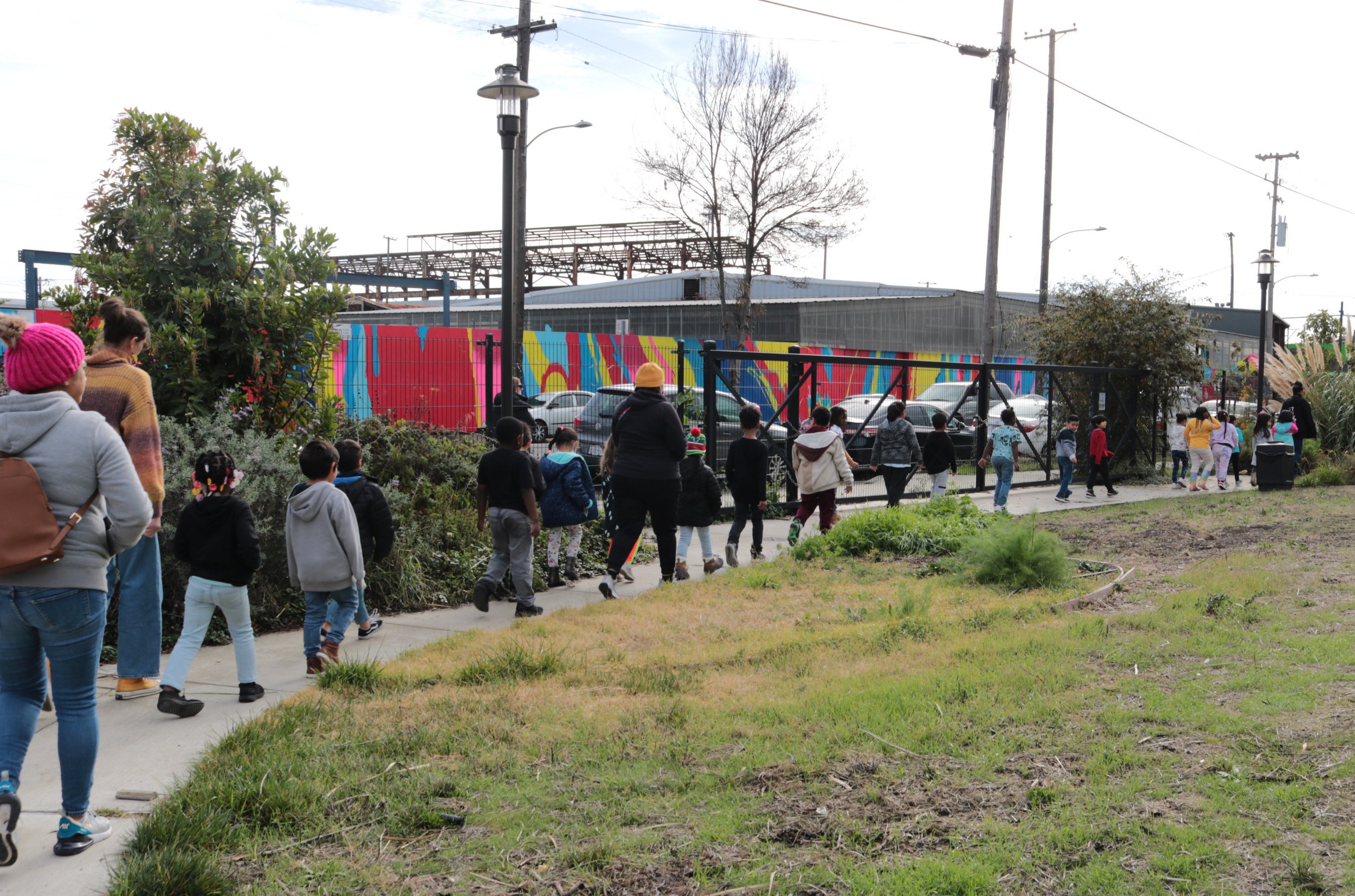
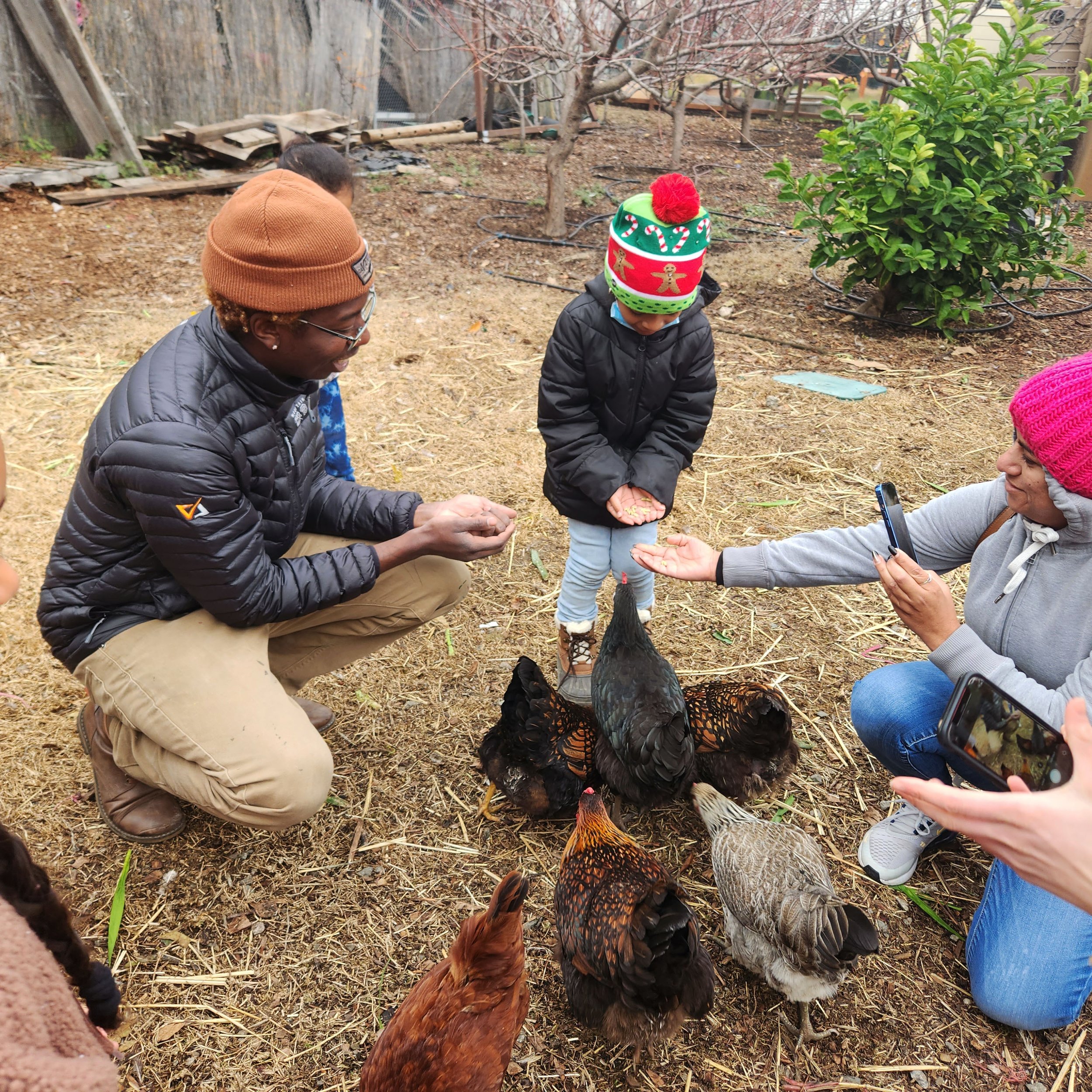
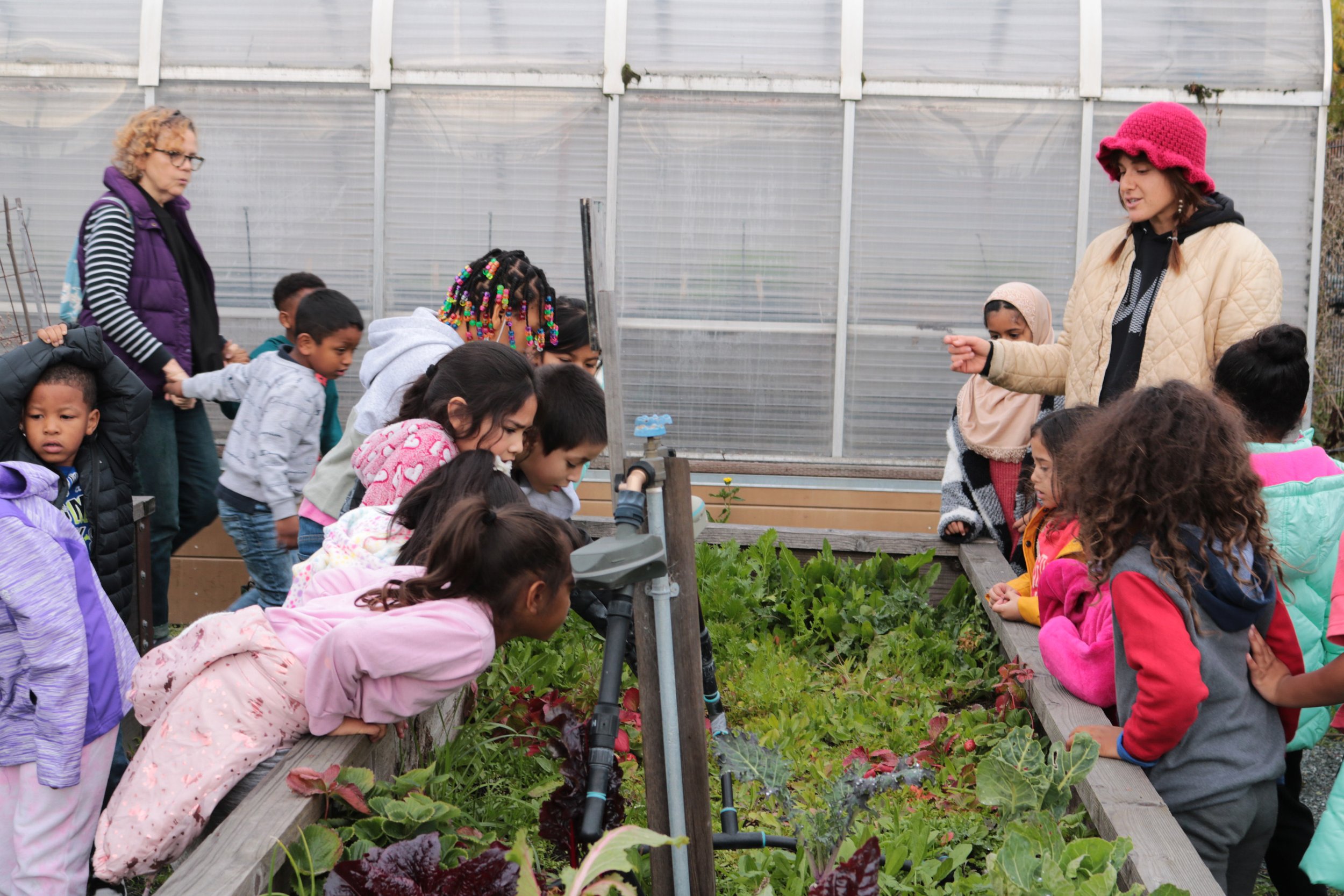
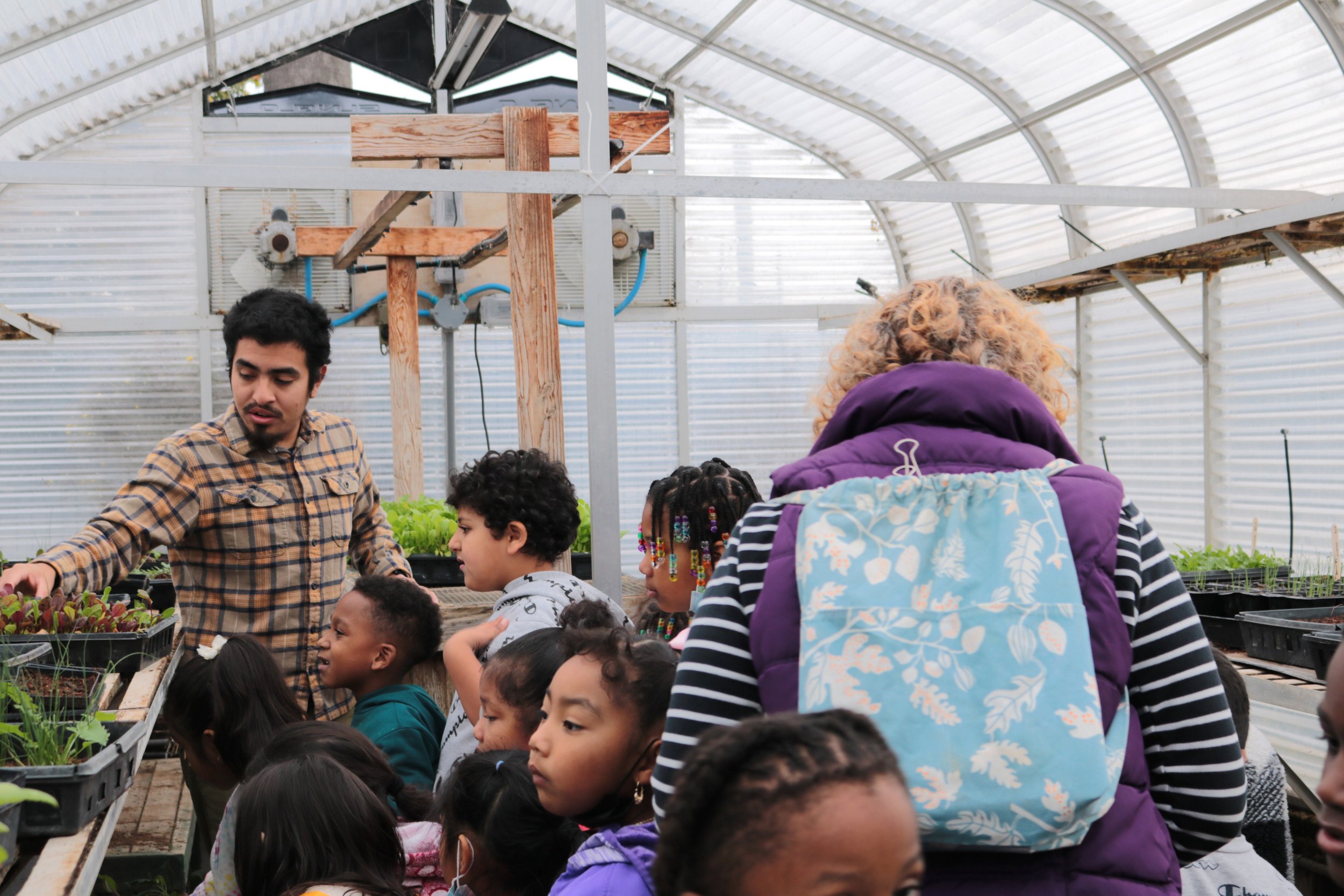
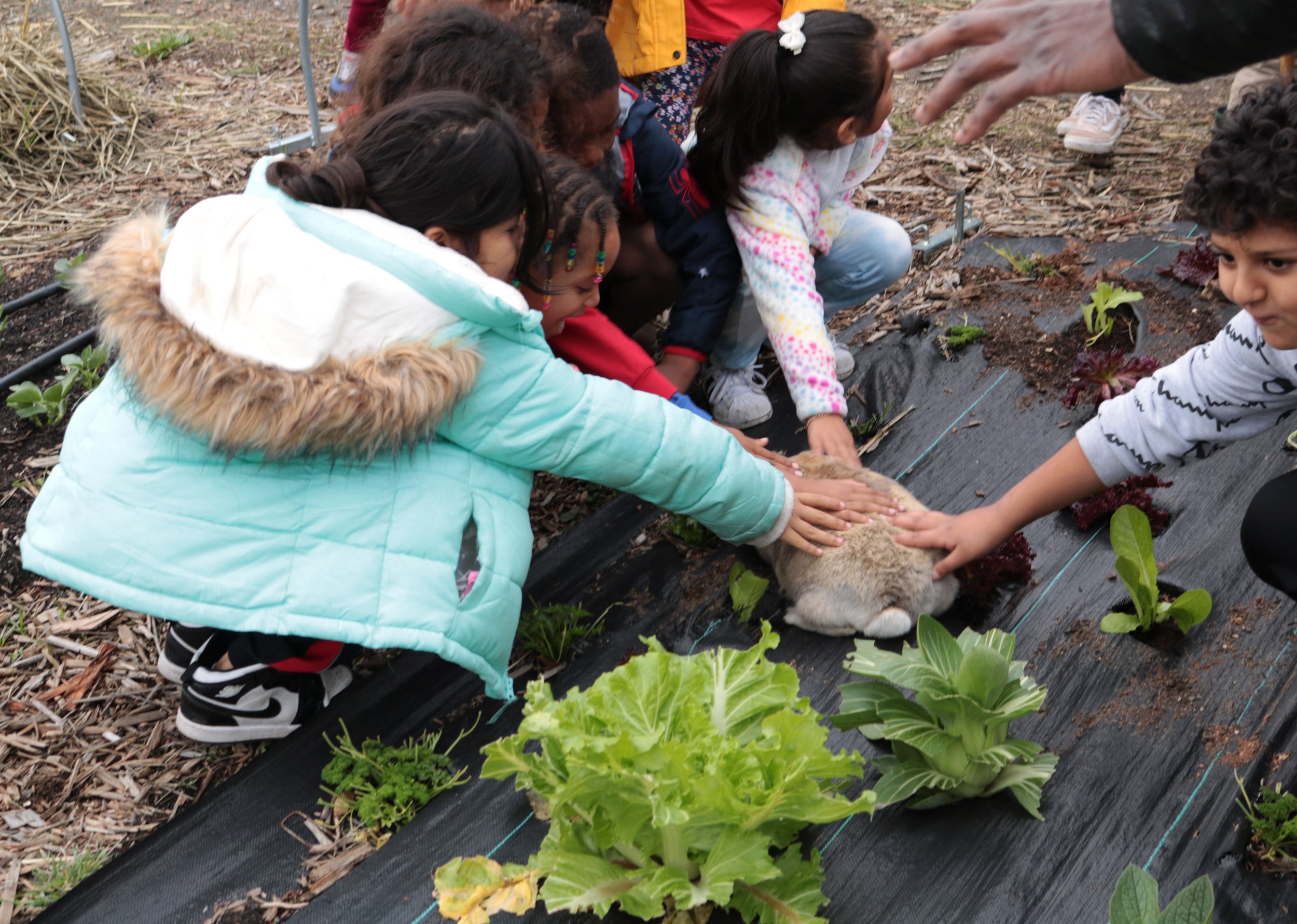
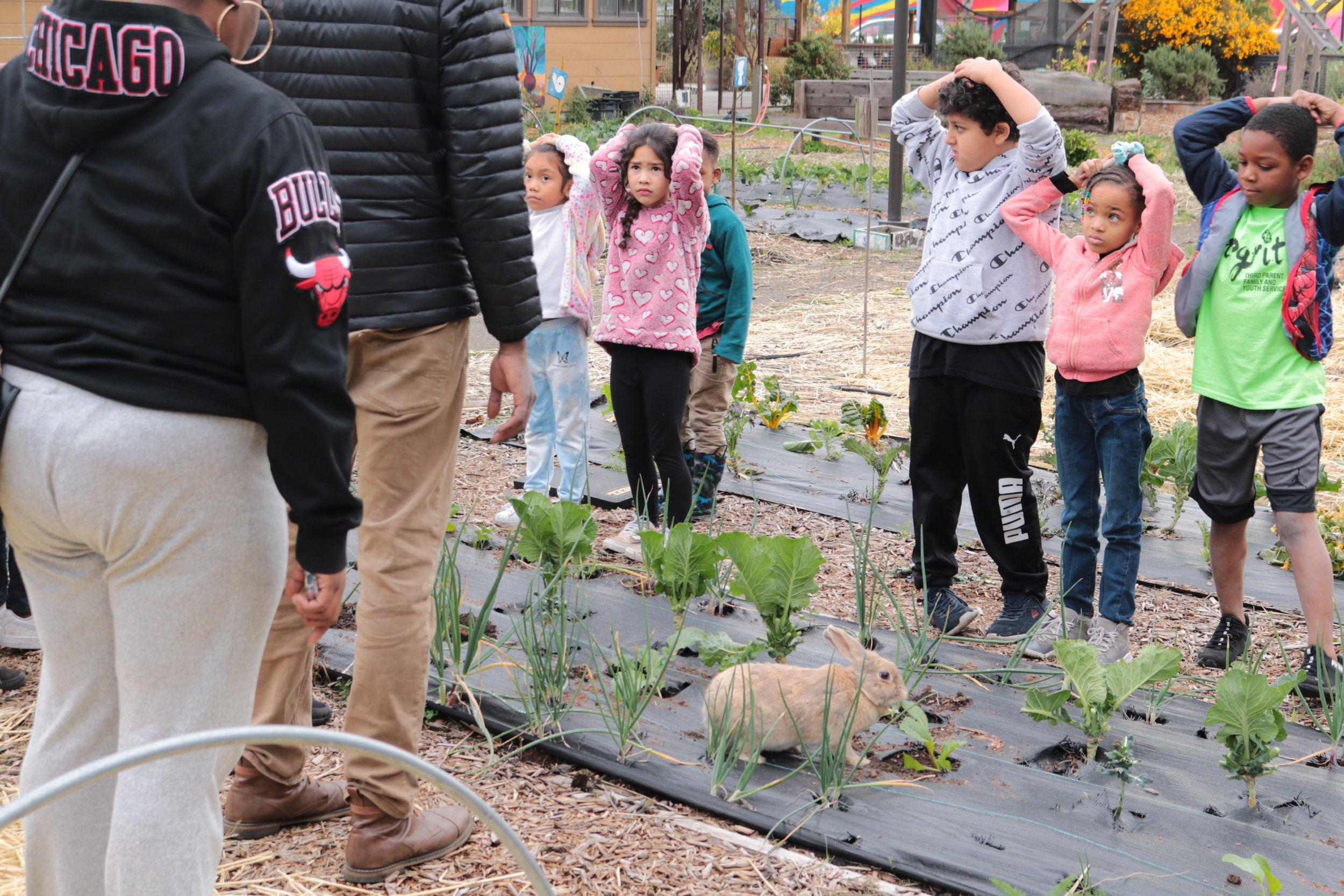
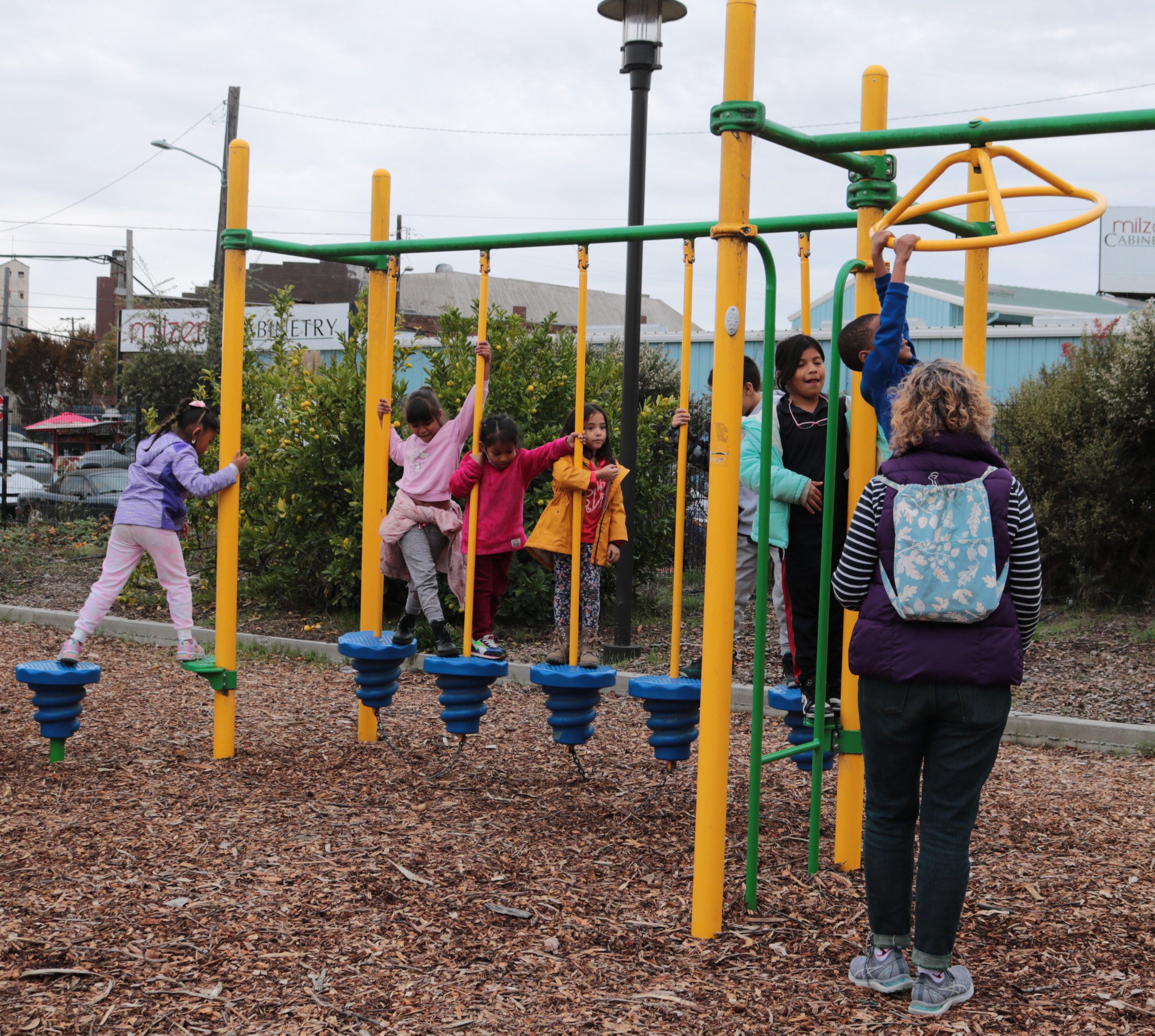

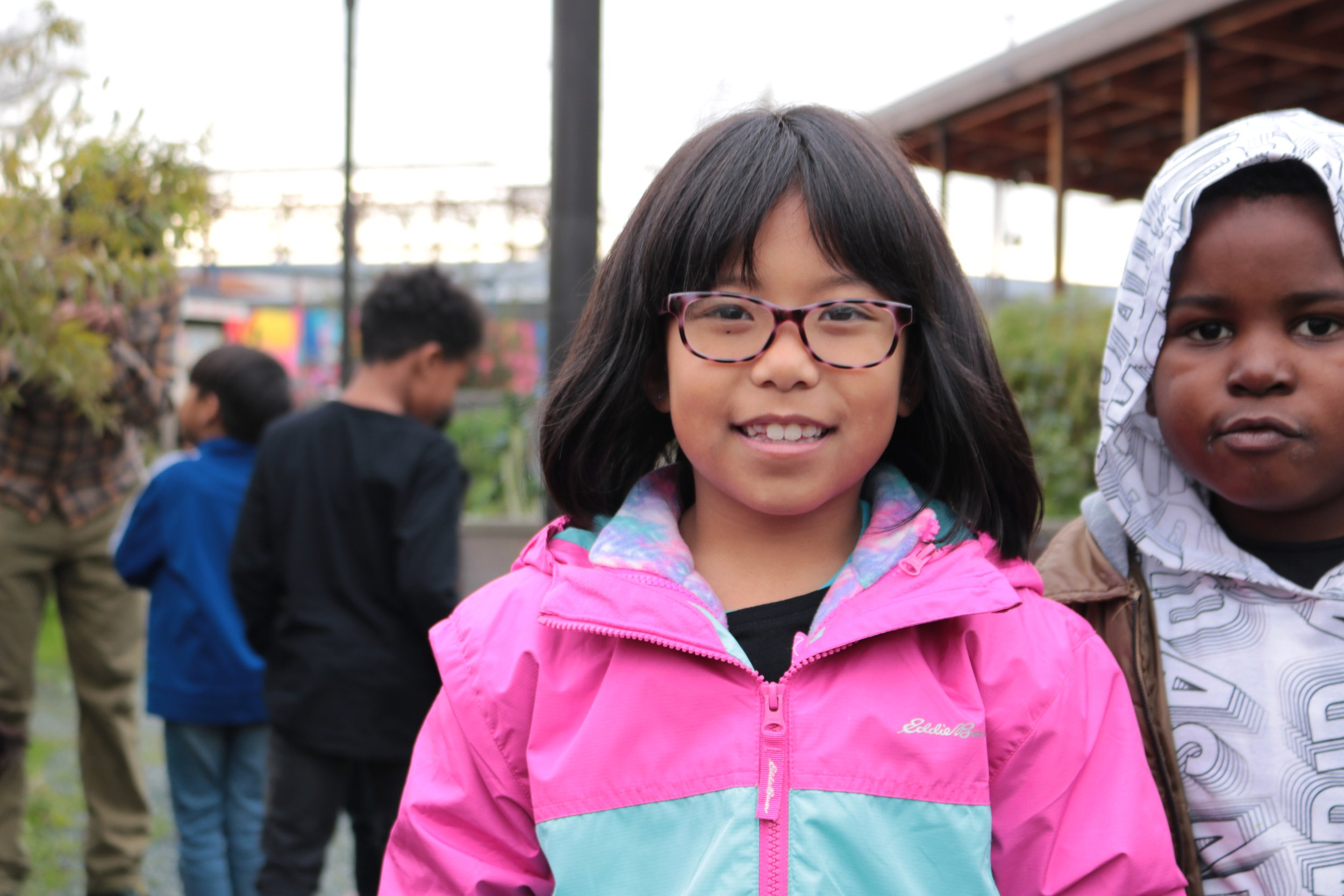
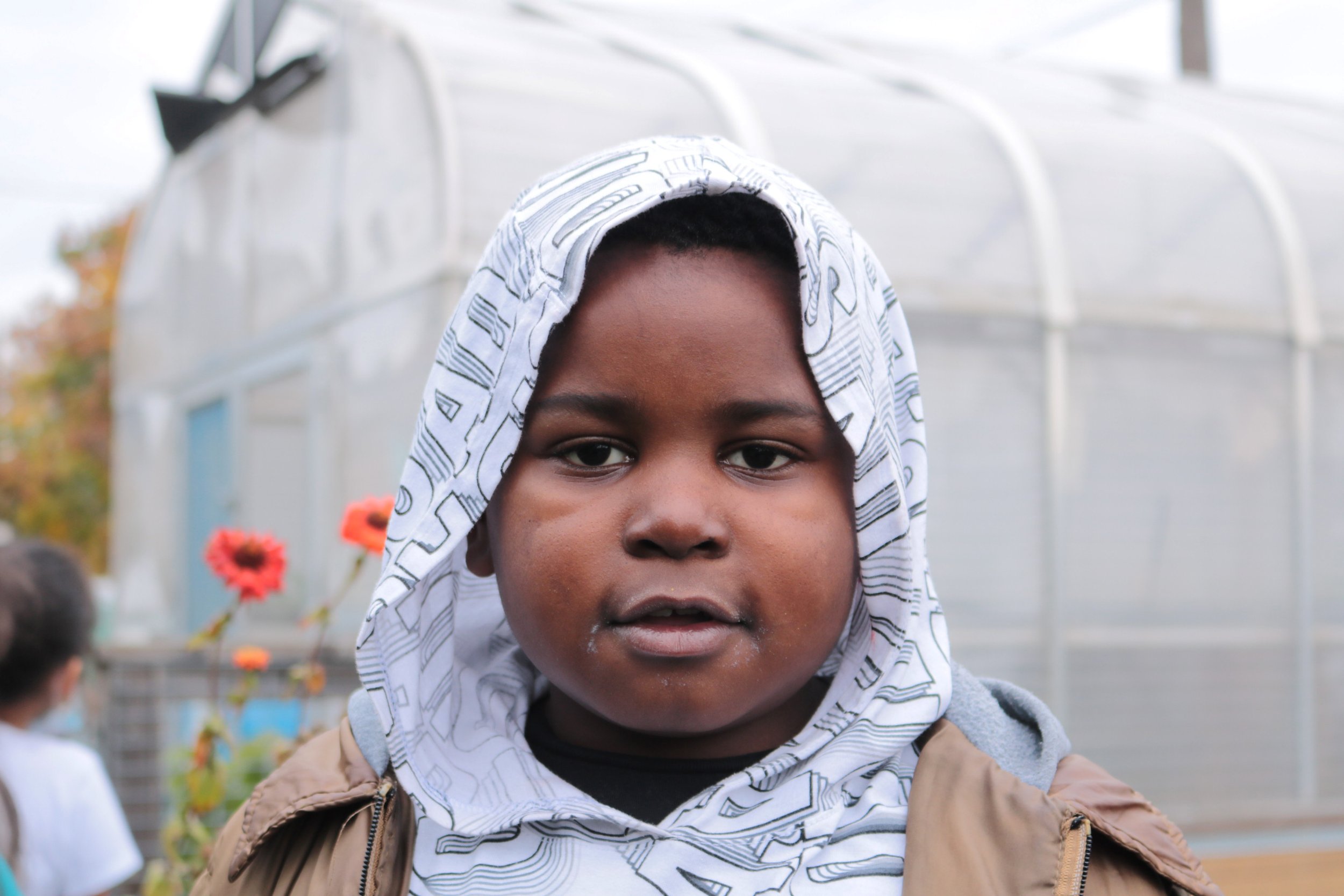
This month, Hoover Elementary 1st graders had the opportunity to visit City Slicker Farms (CSF), and for many of them it was their first time. Just as they tend to vegetables in their garden, CSF provided enrichment for the students’ creativity during this field trip and helped their seeds of curiosity grow.
In addition to providing interdisciplinary STEM and arts integration in the classroom, AHC exposes Hoover students to the intersections of the arts, environmental awareness, local history and community advocacy through the Oakland Legacy Project program. The Center for ArtEsteem has partnered with CSF since 2016 to bring environmental education to underserved Oakland schools such as Hoover through outdoor enrichment, introductions to gardening, and access to green spaces.
Since 2001, CSF has been in the vanguard of the food justice movement. CSF empowers community members to meet basic needs for fresh, healthy food through skills training, community building, direct service, and a commitment to social, economic and racial justice. CSF organizes low-income communities to achieve equal access to fresh, healthy, organic food through sustainable urban gardening, ecology, environmental stewardship and more. In 2016, City Slicker Farms opened a previously vacant industrial lot at 28th and Peralta Street as an Urban Park and Farm that includes lawn space for running and playing, a vegetable growing area, a community garden, fruit orchard, chicken coop, beehive and dog run.
CSF educators Gianna Zamora and Jay Hill led Hoover students through a tour of the farm. First sitting at the gazebo, students were asked about their knowledge of plants and gardening, which was limited for many of them. They discussed how food is grown and ends up on their dinner table. The educators then brought the students to the community garden, where they practiced appreciating the plants with their eyes and noses. One student, Elizabeth, was excited when she was able to correctly identify brussel sprouts and tomatoes growing in the garden beds. The tour continued into the greenhouse, where they learned about how some plants need to stay warm to survive the winter. While walking through the main gardening plot, students said hello to the resident rabbit and a visiting stray tabby cat.
The final destination of the tour was the chicken coop. Although several students were afraid of the chickens hurting them, they faced their fears and were able to pet or feed the chickens. “They’re so soft!” one student exclaimed.
Students were able to play on the playground during their remaining time. At the end of the field trip, AHC Program Director Ms. Phyllis Hall refocused the students with somatic exercises, calling their attention to thank nature for all that it offered them today. She ended the exercise by asking the students, “The essence of our being is?” All the students instinctively responded with “love”, completing the first attitudinal healing principle.
When it was time to depart, parent chaperone Katba Korin expressed, “I had no idea this place existed in our neighborhood!” When told that CSF was open to the public, she set intentions to bring her family to the farm in the future.
The 1st grade students not only left the farm with fragrant flowers for their classroom, but also the knowledge of respectful boundaries with those around them, responsible land stewardship, and newfound accessibility to green spaces.
Highlighting the Story of the Oakland Super Heroes Mural Project: AHC's Feature in Oaklandside
The Center for ArtEsteem featured in Oaklandside’s Arts & Community Spread
‘Born out of this community’:
How 2 West Oakland arts nonprofits spotlight Hoover-Durant
by Ricky Rodas
“Center for ArtEsteem and Bay Area Mural Program’s San Pablo Avenue murals represent the neighborhood’s history and culture.”



